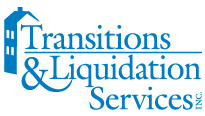Alzheimer’s disease – a form of dementia that causes progressive changes in brain cells.
Arteriosclerosis – condition in which the walls of blood vessels become thick and lose their elasticity.
Arthritis – An inflammation of the joints. Causes the joints to become stiff, less flexible and painful
Assisted Living Facility – A residential living arrangement that provides individualized personal care, assistance with activities of daily living (ADLs), help with medications, and services such as laundry and housekeeping. Some minimal health and medical care may be provided. Types and sizes of facilities vary, from small homes to large apartment-style complexes.
Atherosclerosis – A disease in which blood vessels become narrow because of the presence of fat and minerals, such as calcium.
Cataracts – A condition of the eye where the normally transparent lens of the eye becomes cloudy or opaque.
Cerebrovascular Accident – A stroke which damages brain cells. Also known as a CVA.
Continuing Care Retirement Communities (CCRC) – A CCRC retirement complex offers a range of services and levels of care. Residents may move first into an independent living unit, a private apartment, or a house on the campus. The CCRC provides social and housing-related services and often also has an assisted living unit and on-site or affiliated nursing home. If and when residents can no longer live independently, they move into assisted living or the CCRC’s nursing home.
Dementia – The loss of mental ability characterized by a decrease in intellectual capacity, loss of memory, impaired judgment, personality change, and disorientation. This is also called brain syndrome.
Dysphagia – A difficulty in swallowing, which is a frequent complaint of the elderly.
Geriatric Care – Care provided to elderly individuals.
Gerontology – The scientific study of aging and the problems of the old.
Glaucoma – A condition that is more common in the elderly, in which the intraocular pressure of the eye increases and interferes with vision.
Independent Living – A residential living setting with minimal services, designed for older individuals that require little help in managing their day-to-day needs. Meals may be offered in a shared dining room; light housekeeping, social activities, and transportation may be available. (May also be known as Retirement Community Living.)
Long-Term Care Facility – Also known as a Nursing Home or Convalescent Care Facility, a Long-Term Care Facility is licensed and provides general nursing care to those who are chronically ill or unable to take care of daily living needs.
Memory Care Assisted Living – Also known as Dementia Care, this level of care generally offers support and protections that go beyond traditional assisted living communities. Specialized staff training, secured exists, and enhance visual cues to help residents feel more at ease in unfamiliar surroundings are often included in these facilities.
Ombudsman – A specially trained individual who works with the elderly and their families, health care providers, and other concerned individuals to improve the quality of care and quality of life.
Osteoporosis – A condition in which calcium and other minerals are lost from the bones, causing the bones to become brittle and more likely to fracture or break.
Rest Home – Residential private homes designed to provide housing, meals, housekeeping, and personal care services to support frail or disabled individuals. Rest Homes are licensed or certified and must meet criteria for facility safety and types of services for the number and types of residents they serve. At least one caregiver must always be present on the premises.
